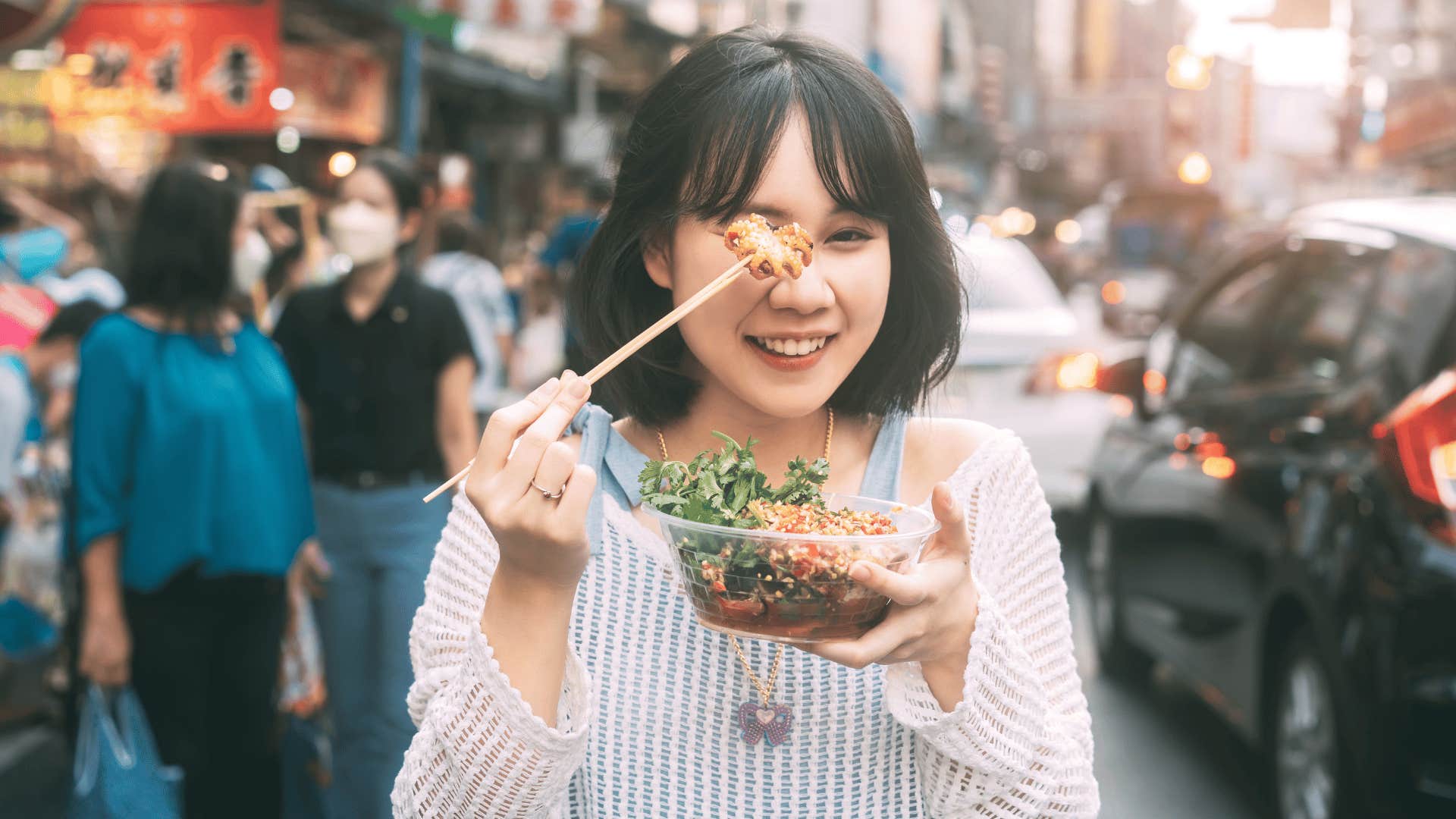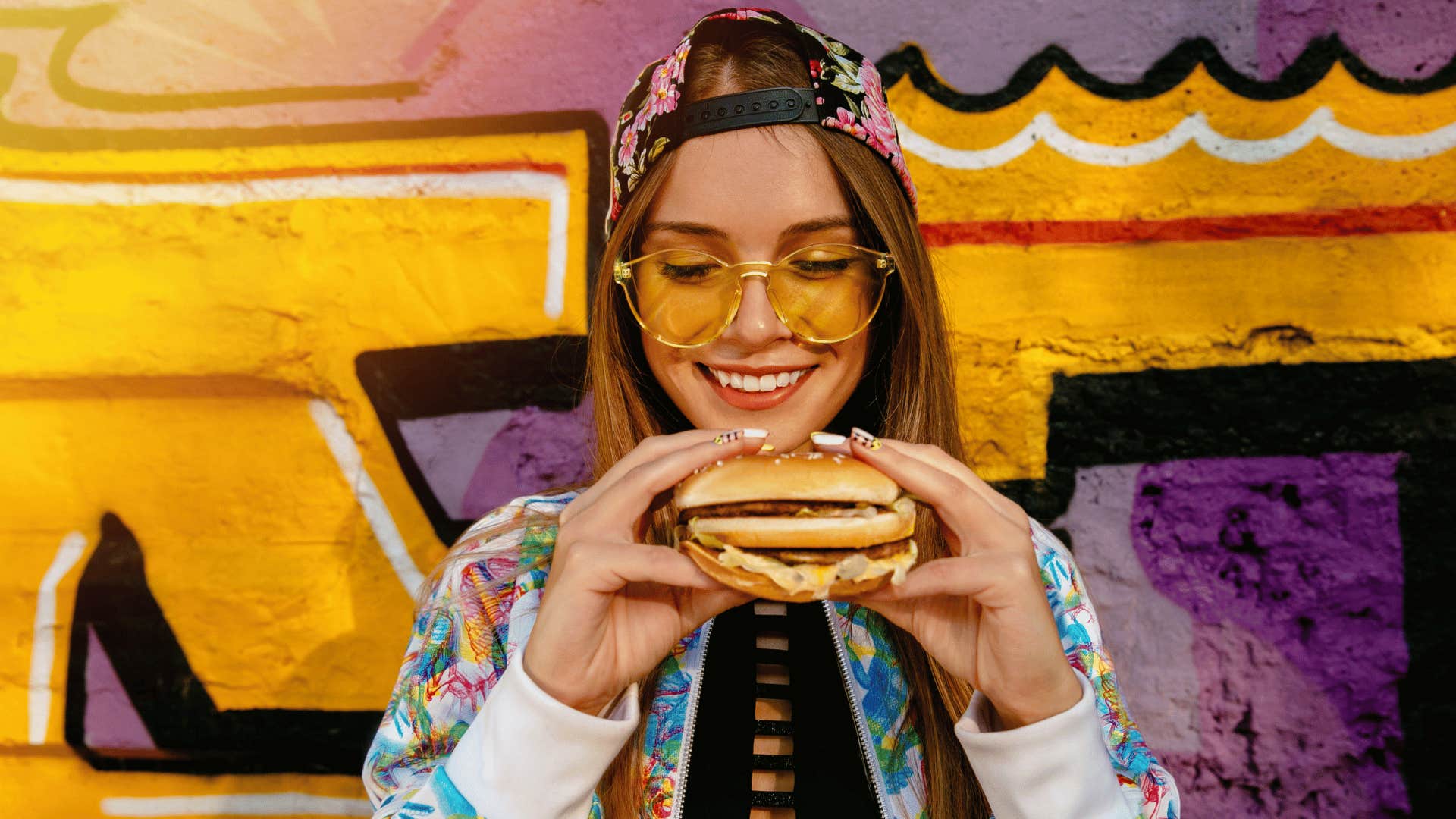11 Foods That Are Considered Bad Luck On New Year's
Bring good fortune into the new year by avoiding certain foods when the ball drops.
 filadendron from Getty Images Signature via Canva
filadendron from Getty Images Signature via Canva As New Year's Eve celebrations ring out across the world, people are thinking about their goals for the year ahead. And it's safe to say that good fortune is in the air. However, in the midst of all this excitement, few think about the food they eat impacting their future.
While not everyone believes in superstitions and may consider it nonsense, there are some foods that are considered bad luck on New Year's and should likely be avoided, whether or not there is any merit to these beliefs. Because in some cultures, abiding by those beliefs and superstitions have brought incredible luck.
Here are 11 foods that are considered bad luck on New Year's
1. White-colored foods
 aslysun | Shutterstock
aslysun | Shutterstock
Regardless of a person's background, popular foods that are staples in many kitchens include white rice, tofu, and eggs. But white foods are considered bad luck on New Year's.
While resolutions are meant to bring forth great opportunity and fortune, in some cultures, the color white isn't always a symbol of good fortune.
Writer Kelly Pang explained that in China, the color white is often associated with death, as people tend to wear white at funerals. So, to avoid misfortune, it's best to skip any white-colored foods like white rice or deviled eggs on New Year's Eve.
Even if people don't believe in this superstition, it won't hurt them to take an extra precaution, at least for one night.
2. Squid
 dodotone | Shutterstock
dodotone | Shutterstock
If someone is planning to eat squid on New Year's Day, they might want to rethink their choice. According to YouTuber Mike Chen, Chinese workers used to travel far. During this period, they would carry their belongings in a rolled-up blanket and would have to re-roll them if they were unlucky enough to get fired.
What does all of this have to do with squid? Well, Chen explained that during this time, there was a popular dish known as stir-fried squid.
Since it was so famous, people began to notice the resemblance between the curled-up squid and the rolled-up blanket. Thus, this dish was deemed as a symbol of bad luck, eventually leading to avoidance on New Year's Eve altogether.
3. Catfish
 EZ Stock Studio | Shutterstock
EZ Stock Studio | Shutterstock
Another food considered bad luck on New Year's is catfish. To be fair, catfish already has a bad reputation, as it's known to be difficult to cook.
However, the stigma surrounding catfish is a lot deeper than whether someone's grandmother can cook it; rather, people typically don't eat this fish on New Year's Eve due to it being a bottom-dwelling creature.
Some individuals see bottom-dwellers as bad luck. According to folk superstition, bottom feeders are considered bad luck due to them literally being on the bottom of the ocean floor. As a result, some believe that if a person eats catfish, especially during New Year's, they will find zero movement in their career or relationships.
Though catfish are symbols of fertility and prosperity in some cultures, this specific fish is also believed to condemn people to a year of subsisting on scraps. That said, whether people take that risk is up to them. However, for those who want to be cautious, skip this dish and maybe opt for something less fishy.
4. Hollow bread
 Pixel-Shot | Shutterstock
Pixel-Shot | Shutterstock
It's disappointing to hear that some breads are off the list for New Year's, because one food that's considered bad luck on this occasion is hollow bread.
According to superstition, if someone eats hollow bread, they're setting themselves up for a rocky new year. This is because the pockets of air in hollow bread symbolize coffins and may be a death omen.
Despite this belief, people tend to enjoy bread with their meal, especially at restaurants. But if superstitions are still worrisome, perhaps stick with good old-fashioned white sliced bread as a positive addition to your New Year's meal.
5. Bananas
 Krakenimages.com | Shutterstock
Krakenimages.com | Shutterstock
Dishes like banana pudding are a staple for many during the holidays. But unfortunately, this well-loved fruit is also considered a bad omen, in general.
According to the Houston Museum of Natural Science, bananas may actually be cursed, as a common superstition among sailors is that bringing a banana on board is bad luck:
"In the old days, sailing ships transporting bananas would throw caution to the wind (literally) when transporting the berry (yep, it's a berry) in order to get to their port o'call quickly before the bananas spoiled; therefore, they were more likely to have accidents.
Another theory is that bananas give off ethylene gas as they ripen and a build-up of this gas in the hull may have caused crew members to become ill. A third theory is that the infamous banana spider would find its way into the ship, get loose and bite crew members, causing them to die very painful deaths."
Whether this superstition is real or not remains to be seen, but this bad omen has spread far and wide, making bananas something people should probably avoid on New Year's, even if they aren't spending it at sea.
6. Lobster
 YAKOBCHUK VIACHESLAV | Shutterstock
YAKOBCHUK VIACHESLAV | Shutterstock
Back in the day, lobster wasn't considered the high-class food that most people know and love today. According to the American Lobster, a partnership of communities and public agencies, including the Pictou-Antigonish Regional Library, in the early 1900s lobster was considered a poor man's food.
Stories around this time involved children bringing lobster sandwiches to school being viewed as poor by their classmates and the public. Yet most people know how much has changed since then, and the stigma surrounding lobster has subsided, with it now being considered a high-end meal.
Though no longer considered a food of "poor people," many consider it a bad omen to eat on New Year's, as eating anything that moves backwards often means that person will experience setbacks in the following year.
7. Broken or short noodles
 aslysun | Shutterstock
aslysun | Shutterstock
Whether it's a big bowl of ramen or a meal of homemade pasta, people go crazy for delicious noodles. However, in many Asian cultures, eating certain noodles is a bad omen on the eve of the new year.
According to these old superstitions, eating broken or short noodles can indicate that someone's life will become shorter beginning after New Year's Day.
Knowing this, it might be wise to avoid cutting noodles up before eating, or just passing on them altogether. Though these are only superstitious beliefs, it may bring a peace of mind to just avoid noodles until January 2nd or afterward.
8. Sour grapes
 Bojan Milinkov | Shutterstock
Bojan Milinkov | Shutterstock
According to an article from Integrated Pest Management from the University of Missouri, grapes were grown as early as 6500 B.C. during the Neolithic era.
Because of this, grapes have always been a staple throughout the world. In fact, in Spanish traditions, people eat 12 grapes at the stroke of midnight on New Year's Eve to welcome in luck for the year ahead.
However, that same tradition says that eating any sour grapes can be an indication of bad luck that affects each month. For instance, eating two sour grapes would mean the first two months of the year would be unlucky.
9. Chicken
 Mallika Home Studio | Shutterstock
Mallika Home Studio | Shutterstock
Many celebrations for sports, birthdays, or even fun get-togethers include a tray or two of delicious chicken wings. And while the presence of this food usually indicates a great time to be had, on New Year's, chicken is a food to avoid.
In Filipino culture as well as other cultural superstitions, chicken is considered unlucky because they scratch backwards, which symbolizes setbacks. Additionally, a chicken's wings mean they may "fly away" with any good fortune you envisioned for the future.
Roosters, which are male chickens, are known to symbolize bravery, honesty, and protection. But people may just want to avoid this winged animal while ringing in the new year.
10. Parsley
 Olga Kri | Shutterstock
Olga Kri | Shutterstock
Parsley is an herb that's popular in many Middle Eastern, Mediterranean, and American cuisines. According to the USA Regenerative Agricultural Alliance, parsley is a rich source of vitamins, minerals, and antioxidants, and adds a beautiful pop of color when used as a garnish.
While some may consider parsley a good luck charm, seeing as how it's so green and popular, this herb has a negative reputation. It's not only a difficult plant to grow, it has also been deemed a "devil crop" for most farmers and harvesters.
Additionally, since the 1600s, parsley has been considered bad luck on New Year's Eve. In fact, in Greek culture, there's a legend of an army heading into battle, coming across donkeys covered in parsley and considering it a sign of impending death. In Greece, it's also common to decorate crowns for funerals with parsley or place the herb on top of tombs.
11. Beef
 Maksym Azovtsev | Shutterstock
Maksym Azovtsev | Shutterstock
Whether it's ribs, a hearty steak, or some kind of kebab, serving beef on New Year's Eve may be a staple in some celebrations. However, superstitions claim that eating beef on New Year's is incredibly unlucky.
Some cultures believe that eating meat at all, especially beef, can bring misfortune. Not to mention that a study from Archives of Internal Medicine, as well as other research, found a link between red meat consumption and an increased risk of cancer.
As a result, the stigma around beef has turned it into a tradition where some refuse to eat it altogether on New Year's Day. Because, as the superstition goes, because cows eat while standing still, if someone eats beef, they are sure to have a stagnant year ahead.
Marielisa Reyes is a writer with a bachelor's degree in psychology who covers self-help, relationships, career, family, and astrology topics.

